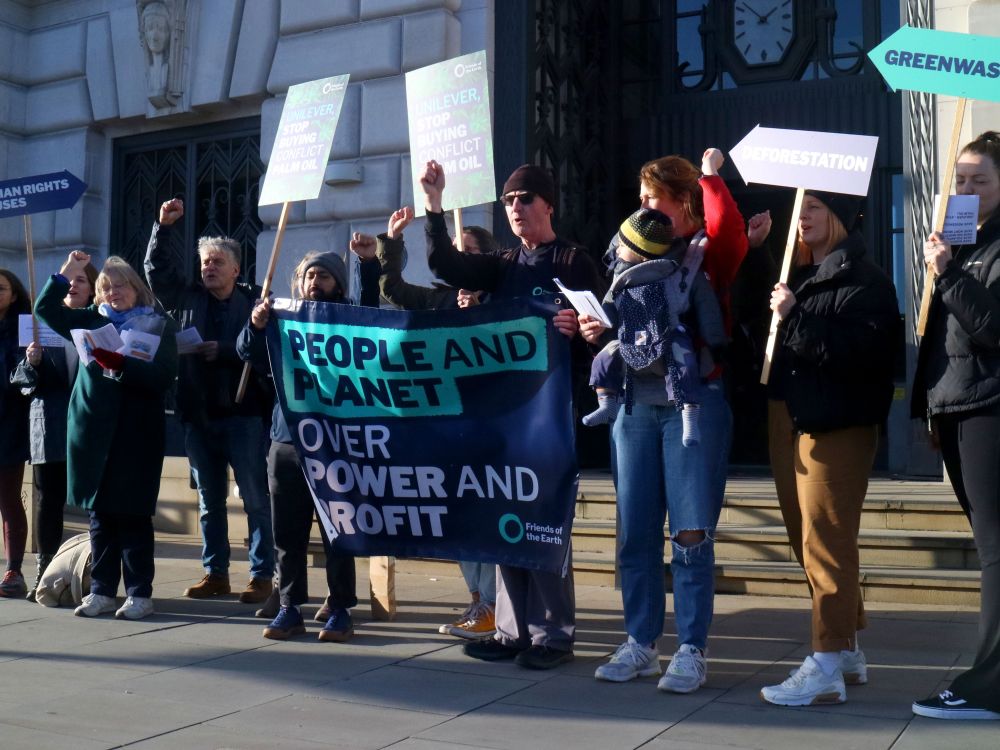
As the world's most widely used vegetable oil, palm oil crops up in all kinds of everyday products like biscuits, soap and chocolate. Cheap and versatile, the UK consumes around 1 million tonnes of the stuff annually. But almost 90% of our palm oil imports come from countries with high deforestation rates and poor track records on human rights.
Southeast Asia produces much of the world's palm oil. Home to large rainforests and tropical peatland, the destruction of these habitats causes substantial carbon emissions and catastrophic fires. What's more, the plantations displace local people and destroy their homes and livelihoods, leading to thousands of land conflicts.
One of the most notorious palm oil companies is Indonesia's Astra Agro Lestari (AAL), owned by UK company Jardine Matheson. AAL is involved in many conflicts with local communities, occupying their land without consent. Read more about AAL and its ties to UK companies below.
We need to make companies accountable for the damage they cause in their supply chains. And if we can't ensure transparency and corporate responsibility, then we need a new law that will.

UK palm oil imports

We need to hold companies to account for harm in their supply chains
Get your MP to back a new law




